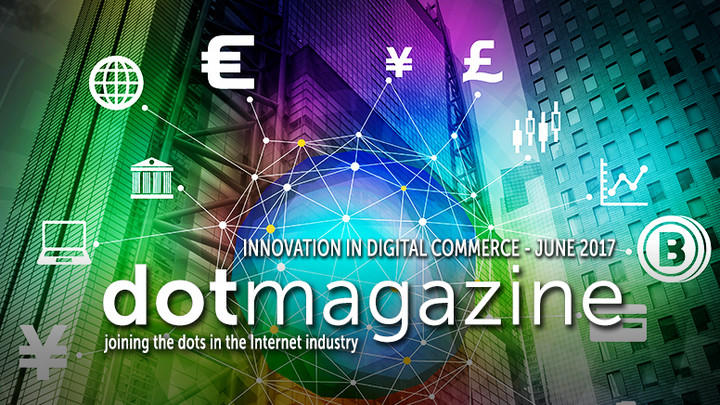doteditorial June 2017
The June issue of eco’s dotmagazine, “Innovation in Digital Commerce”, explores the areas of e-commerce, digital financial technology, and blockchain technology from a range of industry perspectives.

© chombosan | iStockphoto
Welcome to the latest issue of dotmagazine, “Innovation in Digital Commerce”. This explores the areas of e-commerce, digital financial technology, and blockchain technology from a range of industry perspectives.
Online payment services have been around for years, but it is taking a surprisingly long time to develop a widely-accepted and applicable e-invoicing standard. Prof. Georg Rainer Hofmann, Leader of the eco Competence Group e-Commerce, and Meike Schumacher from the Aschaffenburg University of Applied Sciences explore the reasons for the slow uptake of e-invoicing among SMEs and offer insight into the business and environmental benefits – the sheer masses of paper that can be saved – of adoption.
One of the fundamental forms of value creation on the Internet remains online retail. For small and medium-sized enterprises, getting access to infrastructure, developing shop and payment systems, and finding the partners needed to be successful can be an uphill battle. “While online sales are surging, so too are consumer expectations”: Richard Stevenson from ePages offers advice on using Software-as-a-Service platforms to create a successful webshop, and tips and tactics for smaller retailers to develop relevance in a competitive marketplace. Lars Hofacker and Dorothee Frigge from the EHI Retail Institute look at shop systems and payment systems for webshops, as well as looking at some of the hurdles for online retailers. Meanwhile, Dr. Thomas Fischer from noris networks explores the infrastructure requirements for e-commerce solutions and how to develop a secure and reliable e-commerce strategy.
Blockchain is a potentially game-changing technology which is influencing not only financial services – through the myriad of crypto-currencies now in existence, as explained by Daniel Gross from DWF – but also a whole range of other areas where transparency and the guarantee of authenticity are fundamental. This includes electronic health records, according to Dr. Christina Czeschik from Serapion, but also smart contracts, which Stephan Zimprich, Leader of the eco Competence Group Blockchain, explains in his easily understandable glossary of the most common concepts in blockchain. Matteo Cagnazzo and Chris Wojzechowski take a look at some of the security applications of blockchain, and some of the challenges the technology faces. And Anthony Robinson from Corning Optical Communications offers advice to data center operators on how to develop a blockchain strategy within their infrastructure to keep pace with the needs of their customers.
Finally, in our Doing Business in Germany section this month, we focus on two cities with specialist focus areas. Mathias Röckel explains why Frankfurt is such an attractive location for financial services, and Torsten Oletzky from InsurLab Germany looks at the insurance industry in Cologne.


